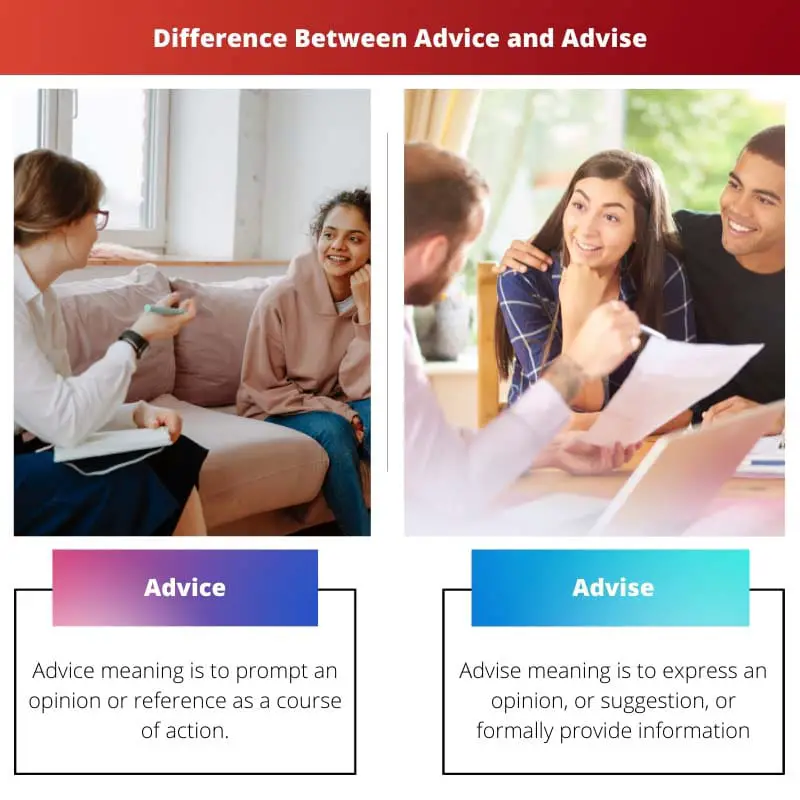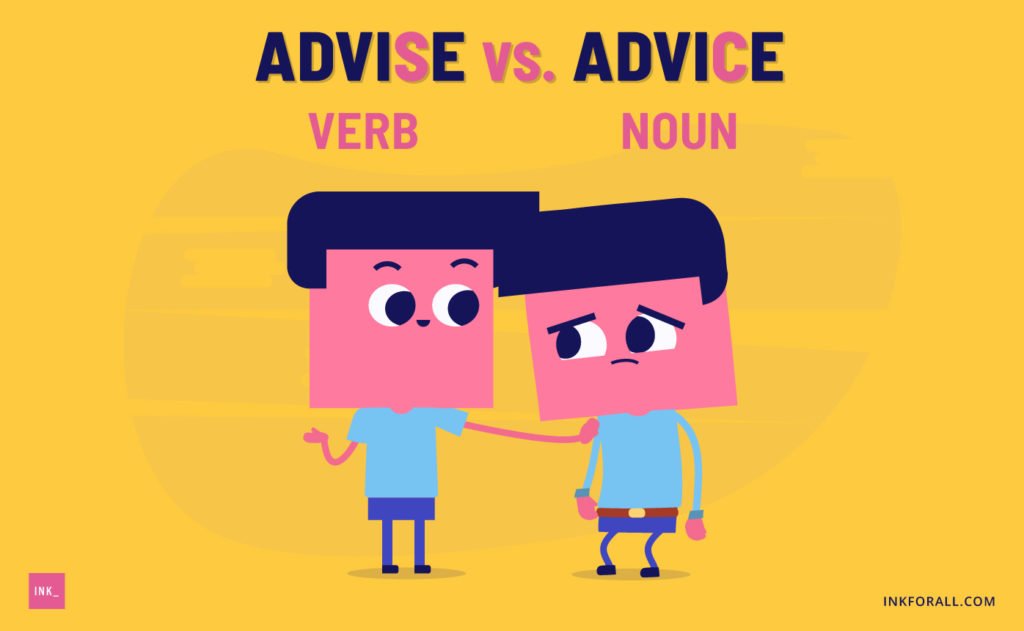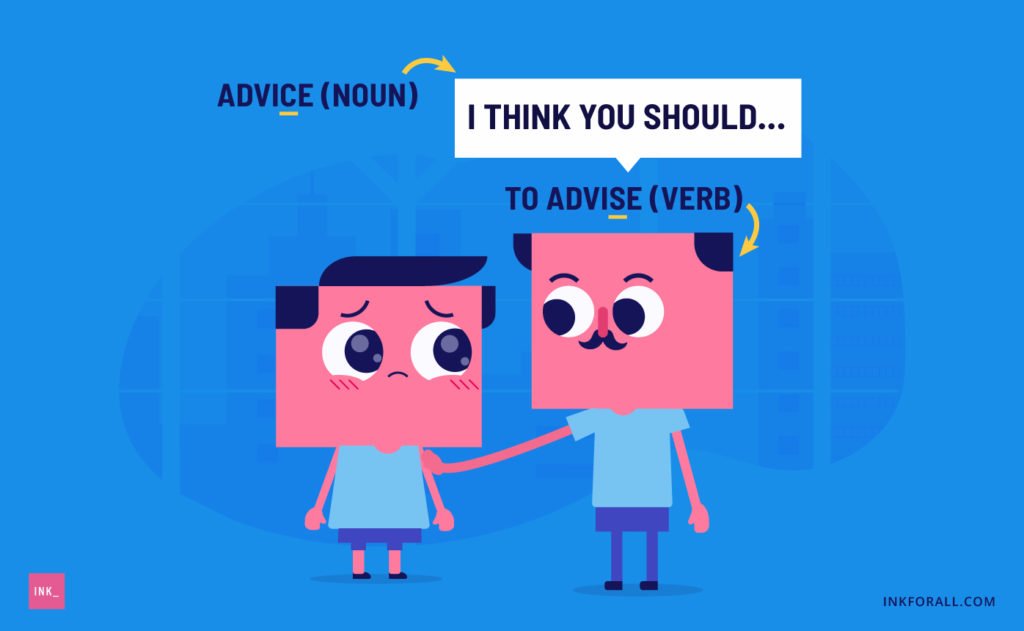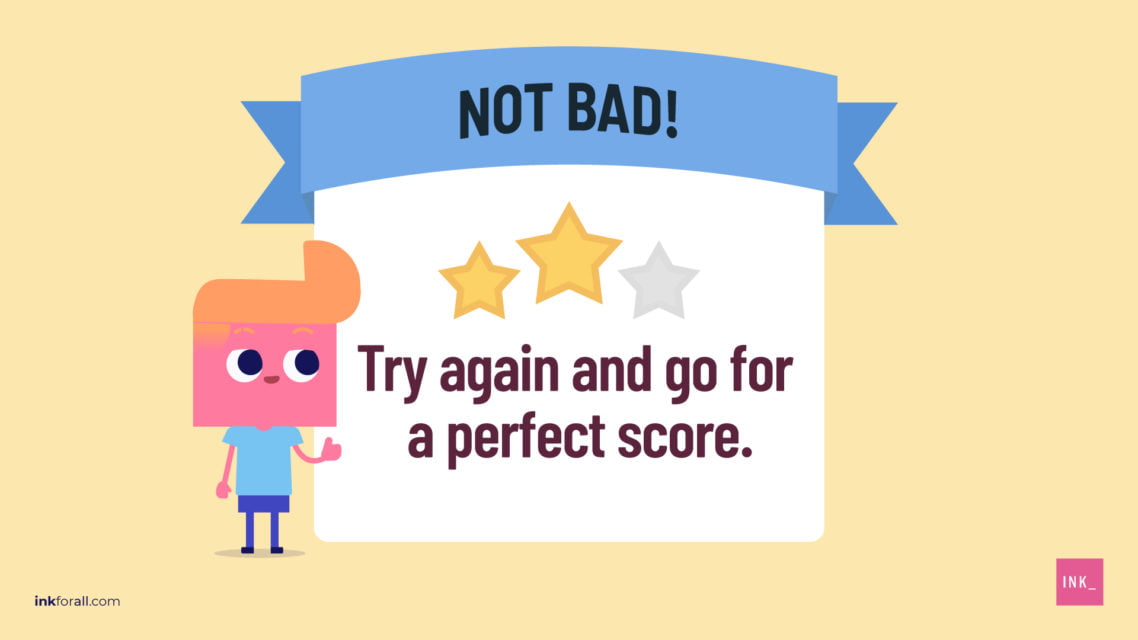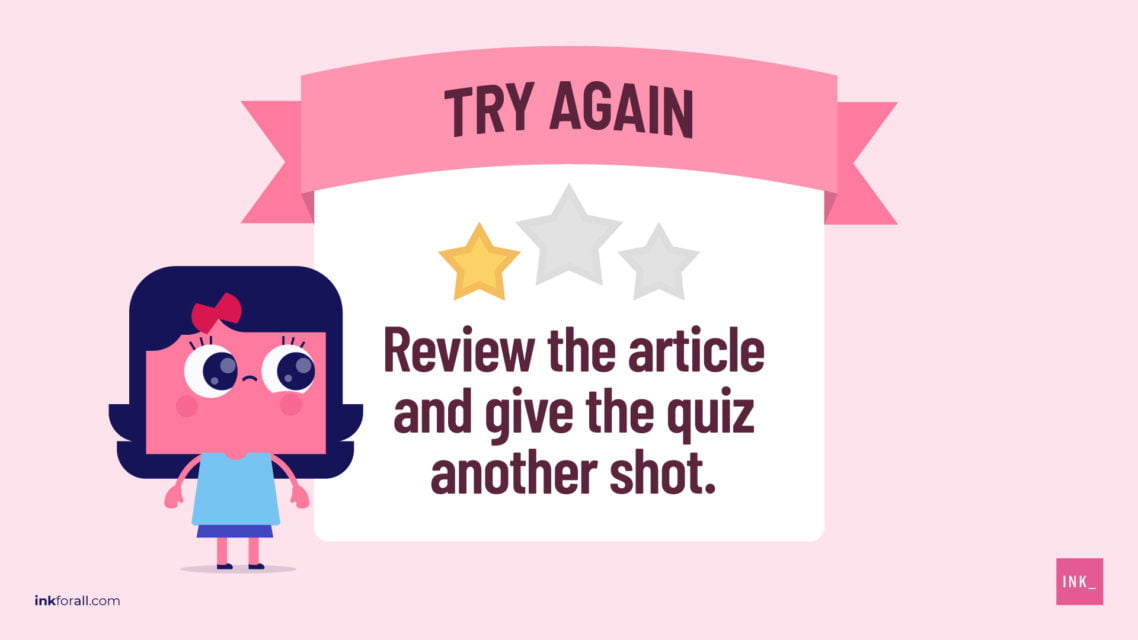Advise is a verb meaning to give a recommendation, opinion, or information. Advice is a noun referring to the opinion or information given or received. Very simply, «advise» means «to give advice.»
Although numerous English usage commentators and handbooks, from grade school up, warn not to confuse the similarly spelled—but clearly different—advise and advice, evidence attesting to English users misapplying them turns up frequently enough to prompt us to give instruction on their correct spellings and meanings. A chief cause of the confusion seems to be that these orthographically close words are both associated with guidance that is sought or given.
Mushill has found herself going beyond the normal role of chamber director, providing advise, support and in some cases a shoulder to cry on for business owners.
— The Belleville (Illinois) News-Democrat, 25 Sept. 2020According to The Hollywood Reporter, Travolta, who hadn’t done a TV role for 40 years prior to this, sought advise from Steven Spielberg, Tom Hanks and Oprah Winfrey before taking the part.
— MailOnline, 7 Jan. 2016The show will contain some adult content and language, so parental guidance is adviced for children younger than 13.
— The MidWeek (DeKalb, Illinois)_, 3 Apr. 2019
The Difference Between ‘Advise’ and ‘Advice’
The main difference between the words, besides a letter and their pronunciations, is their parts of speech. Advise (with an s pronounced z) is a verb that indicates the act of giving an opinion, suggestion, recommendation, or information, while advice (with a c pronounced s) is a noun that refers to the opinion, suggestion, etc., that is given or received. In other words, the verb advise means «to give advice.» Here are examples of correct use of both words:
I advise you to stay at home—the weather is nasty.
The attorney advised her client to not sign the contract.
Patience is always advised when dealing with children.
My parents’ advice was to always follow my dreams.
He followed the doctor’s advice and lost some weight.
Her father offered some words/pieces of advice on buying a home.
Forms of ‘Advise’
As a verb, advise has inflected forms: the present tense advises, the past tense advised, and the present participle advising. For those in doubt on whether to use advise or advice when a verb is called for, remember that a verb expresses action and that the verb advise has an s as does express. Advise is also the word that follows please when expressing a request for guidance or information. «Please advise» is common without a direct object in the closing of a correspondence, but it typically takes one in other contexts (e.g., «Please advise me on how to proceed»; «Please be advised that we will be closing early.»)
‘Advice’ Has No Other Forms
Advice, on the other hand, only occurs in the plain form advice because it is a mass noun, which means it does not have a plural form, making advices incorrect (only advise has an -s suffix); additionally, it is not used with the indefinite article an. If one can recall, when hesitation on which spelling to use strikes, that advise is a verb that expresses action, then by default they can confidently choose advice as the correct noun spelling. Advice can be modified by an adjective («good/bad/professional/unsolicited advice»), and it is often found in the common collocations «to give/offer/provide advice,» «to seek/ask for advice,» and «to follow advice.»
Tips For Keeping Them Apart
We hope this primer on advise and advice is helpful in differentiating the verb advise from the noun advice. We leave you with one more tip for choosing the right spelling: try the alphabet. The term noun comes before verb in the alphabet like the letter c comes before s and, in turn, alphabetically advice and noun come before advise and verb. Pointers aside, correct spelling ultimately comes down to memorizing advice as the noun and advise as the verb. That’s the most sound advice.
What happens when you have to make a difficult decision? Did you find someone facing similar choices? If that is the case, you will pay attention to them as they tell you how to weigh these options. If they make recommendations, you should carefully implement those that may benefit you.
But the question arises whether you should thank them for their advice or advise? No wonder advice and advice are commonly used, and people get confused about which one to use.
Both advice and advise are used in a single context and are separated by only one letter. However, the letter indicates a significant difference to keep in mind when using these terms.
Key Takeaways
- Advice is a noun that refers to a recommendation or opinion given to someone about what to do in a particular situation.
- Advise is a verb that means to provide advice or counsel to someone.
- Advice is something that is given, while advise is an action that is taken.
The difference between Advice and Advise is that advise used if the focus in your decree is performing a not compulsory action, which essentially requires a verb. Advice is used if your verdict does not have a reference as to the key action, that is, one item rather than an achievement.
Want to save this article for later? Click the heart in the bottom right corner to save to your own articles box!
Therefore, we should keep in mind that using advice and advise is not the meaning of the question but the structure of the sentence. Essentially, you are enquiring yourself with a question.
What character does the advice or advise participate in the verdict? Is it an action verb or a thing noun?
In this guide, we are covering all the essential details for you to understand the difference between advice and advise so that you know which word to use and where and if it grammatically makes sense.
Comparison Table
| Parameter of Comparison | Advice | Advise |
|---|---|---|
| Definition | Advice meaning is to prompt an opinion or reference as a course of action. | Advise meaning is to express an opinion or suggestion or formally provide information. |
| Parts of Speech | Noun | Verb |
| Pronunciation | In advice, the letter “c” sounds like “s.” | In advise, the letter “s” sounds like “z.” |
| Synonym | Guidance, direction, help, etc. | Inform, notify, brief, etc. |
| Antonym | Deceit, misinformation, betrayal, etc. | Dissuade, prohibit, restrain, etc. |
| Example | The son carefully listened to his Father’s words of advice | The doctor strongly advised him to do a CT scan for his fractured bone |
What is Advice?
Advice
meaning is to express an opinion or recommendation as a course of action.
The Advice word is a noun. Since this word doesn’t take any action, Advice can also be called an Uncountable Noun.
With uncountable nouns, it means that a sentence can’t have a bit of advice or many pieces of advice.
Following
are some examples where the word advice is used;
- Ram’s father gave him advice for his studies
- Her brother gave her complete financial advice
- I need your advice on which bike to purchase
- Do you know how to start this car? Please give me some advice.
- Ramesh would like some advice on his Visa filing.
“Advice” means “worthy recommendation or opinion”. You provide advice; you will receive advice. Advice may be unwelcome.
In fact, someone may ask you to accept the advice (that is, you “listen to and follow the advice “).
Therefore, it is equally important also to know that sometimes “advice” means formal or professional advice, which counsellors or lawyers usually give.
Thus, it is required to understand that advice is a noun which means guidance, counsel, help, etc.
What is Advise?
Advise meaning is to express an opinion or suggestion or formally provide information.
Advise word is a verb. So you will find that it performs the recommended action along with the subject of the sentence.
Following
are some examples where the word advise is used;
- I advise you to leave this room immediately before a fight breaks out.
- If you ask, the doctor will advise you on the best practices to get the treatment done.
- The landlord strongly advised his tenant to vacate the room.
- If this is incorrect, please advise me on a suitable alternative.
- I can’t advise you any longer; it’s time for you now to choose your path.
“Advise” is a verb that implies action. It means “advise a lawyer” or “provide advice.” It is advised that you do not accompany a disobedient person.
It is advised that you wear a coat before going out in the rain is an example depicting that the verb is used and the subject performs some action.
Thus, advise means, in one sense, “giving advice”. There is a difference between an action and a thing; hence both advice and advise cannot be used interchangeably.
Main Differences Between Advice and Advise
Although both these words Advice and Advise, are used interchangeably, and both are similar-sounding, there are many differences between Advice and Advise regarding usage, pronunciation and sentence development.
- The term Advice is a noun, and the word advise is a verb. The advice can be a thing, whereas advise can be an action.
- The advice can be a thing, whereas Advise can be an action.
- Advice and Advise cannot be used interchangeably.
- If you need help, ask someone for advice on that issue. If you can provide help, advise someone on that issue.
References
- https://dictionary.cambridge.org/dictionary/english/advice
Emma Smith holds an MA degree in English from Irvine Valley College. She has been a Journalist since 2002, writing articles on the English language, Sports, and Law. Read more about me on her bio page.
Main Advise vs. Advice Takeaways:
- Adviceand advisesound similar, but they’re not the same.
- Advice is a noun, while advise is a verb.
- You can giveadvice to someone, or you can advise someone.
- Please advise or kindly advise are requests for information. Some people don’t mind these phrases, while others consider them abrupt or passive aggressive.
- Please be advised is a phrase used to share information with a formal tone.
Do you advice someone, or do you advise them? Do you receive advise or advice? Although the English language makes a distinction between advise and advice, it is not always easy to tell the difference because they are both commonly used in everyday conversations. However, understanding the difference between advice vs. advise is the key to knowing how each word should be used. In this post, we’ll cover the difference between these two words plus when and how you should use them.
What’s the Difference Between Advice and Advise?
On the surface, advice and advise sound the same, but they are actually different in meaning. Besides their difference in spelling and pronunciation, they also answer different questions. Advice (c pronounced as s) is a noun. It refers to the opinion or suggestion that you give or receive from someone. Advise (s pronounced as z), on the other hand, is a verb. It refers to the actual act of giving information and guidance to someone.
Do You Advise or Advice?
You can advise (with an ‘s‘) because advise is a verb. You can’t advice (with a ‘c‘) because this word is a noun. In other words, advice is a noun — it’s a thing.Advise is a transitive or an intransitive verb — it’s a “doing word.” You can’t chair someone, but you can give them a chair. Similarly, you can’t advice someone, but you can give them advice.
Advice vs. Advise Pronunciation Guide
These two words look alike, but they sound different when spoken aloud.
👀 On one hand, the ‘s‘ in advise is almost pronounced like a ‘z‘ (add-VYZ). If it rhymes with the word “eyes,” you know you’re pronouncing advise correctly.
🧊 On the other hand, the ‘c‘ in advice is pronounced like an ‘s‘ (add-VICE). If it rhymes with the word “ice,” you know you’re pronouncing advice correctly.
How Do You Use Advice and Advise in a Sentence?
Here are the best examples of how to use advice and advise in a sentence:
Is Please Advise Rude?
The phrase “please advise” is a succinct request for information or guidance, and isn’t necessarily rude. However, it depends on the context as well as the speaker’s tone, intention, and style. For instance, some may take it as too short, blunt, demanding, or even passive aggressive. Moreover, some consider it redundant and would prefer a direct question. On the other hand, it can also stand in for “let me know” (Should you have any questions, please advise).
Let’s look at a few examples of “please advise” in action:
In the first instance, “please advise” comes across as benign and a little dry, but not rude. In the second instance, the reader knows they’re in trouble. Tone can be hard to read via email, so if you’re in doubt, use a different phrase.
What is Another Word for Advice?
Here are other names and synonyms for the noun advice:
- Guidance
- A recommendation/some recommendations
- Input
- An opinion/your opinion
- Some help
- A suggestion/some suggestions
- A tip/some tips
- A word of wisdom
- Some pearls of wisdom
Advise vs. Advice Recap
Is it advice or advise?Advise and advice are two words that frequently cause authors confusion. Notwithstanding, advise and advice play slightly different roles: they’re similar — but they’re not the same. For instance, you can advise someone, or you can give them advice.
When to Use Advice (with a ‘c’):
- When you need a noun, use advice.
- Advice is a noun, or an object, like a cupcake. You give someone advice; you give someone a cupcake.
When to Use Advise (with an ‘s’):
- When you need a verb, use advise.
- To advise is a verb that means to give advice.
- You advise someone; you direct someone.
Feeling clearer about advise vs. advice? Test your grammar knowledge with our quick quiz below.
Advice and Advice Question #1
Correct!
Wrong!
The answer is FALSE. Although «advice» and «advise» sound similar, they’re not the same.
Advise or Advice Question #2
Correct!
Wrong!
The answer is B. «Advise» functions in a sentence as a verb.
Advice or Advise Question #3
Correct!
Wrong!
The answer is B. «Advise» means to give a recommendation.
Advice vs Advise Question #4
Correct!
Wrong!
The answer is B. The “s” in “advise” is almost pronounced like a “z.”
Advice and Advise Question #5
Correct!
Wrong!
The answer is A. «Advice» refers to the suggestion or a recommendation itself.
Advise vs Advice Question #6
Correct!
Wrong!
The answer is FALSE. «Please advise» is a concise request for information.
Advise vs. Advice Quiz Result
Expert!
Not bad!
Almost got it! Review the article and try again.
Read More: 📊 Than vs. Then ⏰ How to Tell the Difference Once and for all
Have you ever gotten the two words ADVISE and ADVICE confused? Since they only differ by one letter and have similar meanings, knowing how to tell them apart can be tricky. But not to worry – the difference between them is quite simple.
PRONUNCIATION
To start, ADVISE and ADVICE are not pronounced the same way. If you see an S, pronounce it like the voiced [z] sound, as in BUZZ or LIES. If you see a C, on the other hand, pronounce it like the unvoiced [s] sound, as in BUS or LICE.
PARTS OF SPEECH
In addition, ADVICE is a noun, while ADVISE is a verb. For example, you could advise someone to do something, or you could give them advice. ADVICE means a suggestion, a recommendation, or guidance to do something specific.
If you’re friend is struggling in a relationship, maybe they could benefit from some relationship advice. To ADVISE somebody means to give them ADVICE. Perhaps your friend might appreciate it if you ADVISED them to take a certain course of action.
I gave him my word of ADVICE, not that he’s going to listen to me. (ADVICE = noun)
Driving under the influence certainly isn’t ADVISED, for obvious reasons. (ADVISE = verb)
Could I have some ADVICE about what to wear tonight? (ADVICE = noun)
My mother always tries to ADVISE me on things she knows nothing about. (ADVISE = verb)
ADVICE
Now that we’ve seen examples of each word, let’s look into them in more detail, starting with the word ADVICE.
There are certain verbs that you can use with ADVICE. For example, you can GIVE advice to someone else, RECEIVE advice from someone in return, or HAVE advice about something in general. If you want to do what the advice tells you to do, you can LISTEN TO or FOLLOW such advice.
- Don’t listen to Maddie. She tends to GIVE very bad ADVICE.
- There’s a difference between RECEIVING advice and actually FOLLOWING it.
- Do you ever LISTEN to my advice?
- I thought I had good ADVICE to give him, but it turns out I’m clueless about his situation.
The two prepositions mainly used with ADVICE are ON and ABOUT. These point to the topic that the advice pertains to. Meanwhile, you can use the preposition OF if you want to say whom the advice came from.
- How does Jason have any ADVICE ABOUT love? He’s never been in a relationship!
- I think I need some ADVICE ON how to study better for my classes. (Notice that you can follow this phrase with an indirect question. In this case, it begins with the word HOW.)
While you can use the word ADVICE by itself, it’s also common to use the phrase A WORD OF ADVICE, or A PIECE OF ADVICE. Both are used more or less interchangeably.
- My friend gave me a decent PIECE OF ADVICE a while ago about life: If you’re not happy, it’s not worth it.
- Any last WORD OF ADVICE before I head off for my interview?
- A WORD OF ADVICE: If he brings up marriage, run.
Certain compound words can also be formed with the word ADVICE in order to indicate advice about a certain subject. Here are some common ones:
Relationship advice: I’m in desperate need of some RELATIONSHIP ADVICE right now.
Life advice: If you could give your past self one word of LIFE ADVICE, what would it be?
Career advice: Shane told me he sometimes likes to go to a psychic for CAREER ADVICE.
Legal advice: If I end up going to court, I’m going to need some major LEGAL ADVICE.
Spiritual advice: A pastor may be good for SPIRITUAL ADVICE, but I would draw the line there.
ADVISE
Let’s move on to ADVISE, which is the verb form of ADVICE. You can either advise someone TO DO something, or advise them NOT TO DO something. The formula for this looks like this:
TO ADVISE + person + (NOT) TO DO…
I ADVISE you TO RESEARCH the position before you apply for it.
My coach ADVISED me NOT TO STRETCH before warming up.
What would you ADVISE me TO DO in this situation?
Alternatively, you could follow the word ADVISE with a subordinate clause beginning with the word THAT.
- The mayor ADVISES THAT everyone stay indoors during the huge snowstorm this weekend.
- I remember the teacher ADVISED THAT we read the textbook before coming into class.
- Normally, I would ADVISE THAT you show up to work even when sick, but maybe you should stay home.
It’s also possible to indicate that people in general ADVISE something without naming who specifically is giving the advice. For this, it’s best to use the passive voice (i.e., TO BE + ADVISED)
- It’s generally ADVISED not to drink while you’re on antibiotics.
- This brand seems to be ADVISED especially for kids.
- Is it ADVISED to show up to an interview in business casual?
If you want to indicate the general subject of the advice rather than what the advice is specifically, you can use ADVISE with the prepositions ON or ABOUT.
- My counselor ADVISED me ON which majors were best suited for me.
- As opposed to: My counselor advised me to become a biology major.
- I feel like I’ve never been well ADVISED ABOUT anything related to money.
- As opposed to: I feel like I’ve never been advised to save more and spend less.
- Her parents have ADVISED her ABOUT picking boyfriends since she came out of the womb.
Finally, you can use the phrase ADVISE OF. However, this has more of a meaning of informing someone of something rather than giving them advice about something.
- If you’re not sure what to do with your life, I can ADVISE you OF your choices, but I can’t make a decision for you.
- He ADVISED her OF how long the flight would be to Asia, but she appeared undeterred.
- My boss will ADVISE me OF the procedures for tasks twice before getting impatient.
RELATED WORDS
There are several words that are related to ADVICE and ADVISE. For example, an ADVISER (also spelled ADVISOR) is someone whose job it is to give people advice, especially in a school or college setting.
Meanwhile, an ADVISORY is a report or announcement detailing certain advice a person or group of people. The word ADVISORY can also be an adjective to describe something that pertains to advice.
A: I’m not sure what classes I should take next semester.
B: Really? Have you talked to your ADVISER about it?
- Tonight, we’re holding an ADVISORY session for anyone looking for career advice.
- There was a recent ADVISORY in the news not to travel to countries affected by the Zika virus.
More for you:
20 Keywords for Giving Advice and Making Suggestions
How to Speak English Fluently? 2 Unusual Tips – MyEnglishTeacher.eu
How to Learn English? 3 Unbelievable Advice You Can Implement
Though advise and advice look similar and some use them interchangeably there is a difference between advise and advice in their usage and meanings. This difference between advise and advice is mainly in the part of speech they belong to. Advise is considered as a verb whereas advice is considered a noun. However, this distinct difference is used only in British English as the treatment of advise and advice changes in American English. In British English, especially, advise is known as a verb and advice a noun. In other words, advise is considered the verb form of advice.
What does Advise mean?
According to the Oxford dictionary, advise means “offer suggestions about the best course of action to someone.” For example,
He advised me not to go to the bakery in that weather.
However, it should be noted that advise is known as the verb form of the word advice only in British English. Therefore, in British English you have to mind where you use advise. When it comes to pronunciation the ‘s’ in advise is pronounced as the ‘z’ in words like zip and zero.
In American English, the word advise is not much used in everyday life, though the word appears in the dictionary.
What does Advice mean?
According to the Oxford dictionary, advice mean “guidance of recommendations offered with regard to prudent action.” This is the main meaning. The word is also used in the financial sphere to mean “a formal notice of a financial transaction.” Look at the following example that shows how advice is normally used.
John’s advice was very useful in choosing a book.
When it comes to pronunciation, advice should be pronounced according to the following simple rule. The ‘c’ in advice should be pronounced like ‘s’ in words such as sip and sit.
In American English, this word advice is more used than advise in day to day life. The word advice can be used when you are seeking the opinion of others or when you are giving a recommendation to someone.
What is the difference between Advise and Advice?
The words advice and advise have a difference in their usage though they appear to be the same word. This difference is especially highlighted in British English where advise is used as verb and advice is considered as the noun form of advise. In American English, this difference is not given much place.
The word advice is used when seeking opinion and it is used more often. The word advise is used sparingly on the contrary. You would still find its use especially in the business circle. Observe the usage of the word advise in the sentence,
“Please advise me as to how to proceed in this matter.”
Similarly, observe the usage of the two words in the two sentences,
“I would advise you to go to bed late tonight.”
and
“I am happy he took my advice.”
In short it can be said that both the words give the meaning of ‘counselling.’
Summary:
Advise vs Advice
• Advise is a verb. Advice is a noun.
• They both have the same meaning of counselling or asking for someone’s opinion.
• In British English, this noun and verb difference is much considered. That is not so in American English.
• There is a difference in pronunciation of these two words. Advise ‘s’ is pronounced as ‘z’ while ‘c’ in advice is pronounced as ‘s’.
Further Reading:
- Difference Between Advice and Suggestion





